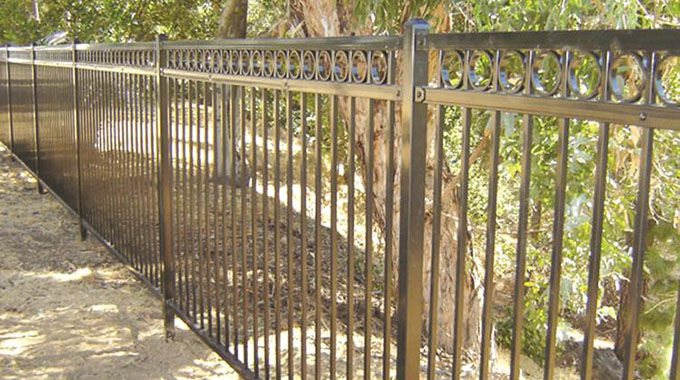Perfect lawn, a status symbol

Tafadzwa Zimoyo Home and Garden Writer
According to Susie Rushton, for any tennis fan there is a certain point in the year when the sport becomes hazed in romance: the start of the grass season.
After months of play on hard or clay courts the arrival on our television screens of luscious green stripes feels like a return to the sport’s roots. Well, the word lawn comes from the Middle English word launde, which means a “glade or opening in the woods” where grasses were exposed to sunlight and allowed to run wild.
But now a launde could also refer to a common area in a village where farmers were able to graze their livestock.
As the sheep and cows ‘mowed’ the lawn, they also left behind fertiliser, ensuring the grass would keep growing. Many years ago, even locally, grassy lawns originally became popular to prove a person was wealthy enough to waste land rather than farm it.
That status symbol no longer applies, since we no longer live in a sustenance farming economy, add to that water shortages too. It is a fact that back in the 17th century, the aristocracy was busy converting the old fortified castles of the feudal world into the countryside manor houses of the industrial age.
Aristocrats didn’t want anybody to think they might be mere farmers, so instead of crops they planted grass on the most visible parts of their properties.
Well, lawns can be fun, but should not be mandatory, some say. We put them in our parks because walking barefoot to a picnic is pleasant. We have private yards because sometimes children should play backyard football or with their toys.
Unlike other fads or short-lived status symbols, lawns have had centuries-long staying power because they are inherently luscious. People like them, and that’s OK. The Saturday Herald Home and Garden, strolled down the north-side to capture how those who love greens and care for them are living up the life. In an interview 61-year-old, Ernesie Marks of Alexander Park in Harare, who always takes a stroll in the National Botanic Gardens, and an avid fan of green lawns, preferably called tennis lawns said, maintaining the perfect lawn takes a lot of work. He said a lawn is now a status symbol rather than a car, hence, it should always be greeny.
“There’s mowing, fertilising, aerating, and watering. Having a trimmed greenfield leading up to your front door is something of a status symbol, and in some cases having a messy front lawn can get you into trouble with your more obsessive neighbours,” he said.
The granny said there is actually a big deal in having a healthy lawn in your backyard.
“Living in a home with a healthy lawn is more than just living around beautiful green grasses. It is more than just having a beautiful landscape good enough to take beautiful selfies.
“It could be a place where you put your fitness intention into practice. A conducive environment where you can conveniently practice your environmental improvement programme, a means to reduce environmental risk, lead a better and healthy life and more,” he said. “Sitting and watching the sunset, do somersaults, have a nice picnic, play a game of tag or just take off your shoes to feel the grass right between your toes.
“This can help make your home have a bigger feel by providing an outdoor space that serves as an enhancement and extension to your living space.
“A healthy garden and lawn can be an oasis of relaxation. Because that it is now a status symbol. I know there are water problems in Harare, but try maintain your lawn,” she explained.
However, it has been noted too that having a green space around the house reduces stress and improves well-being There are studies that have shown that regular access to lawns or green spaces, (it doesn’t matter if it’s in a forest), can increase your productivity, reduce stress levels, and generally improves our lives and moods.
A well-maintained yard or lawn can also reduce the spread of crime, since it reduces the risk of vandalism and theft among others. It creates an ecological barrier between your home and the street.
“A healthy lawn and yard can reduce the dust and pollen pollution in and around the home.
Grasses and plants used for landscaping help in trapping particles that are airborne.
From those particles that are only a small challenge, to those that are risky or potentially harmful, they’re all trapped by the lawns.
“These particles are also rendered powerless in that the lawns harbour important organisms, which break the pollutants down,” said one gardener from Harare.









Comments